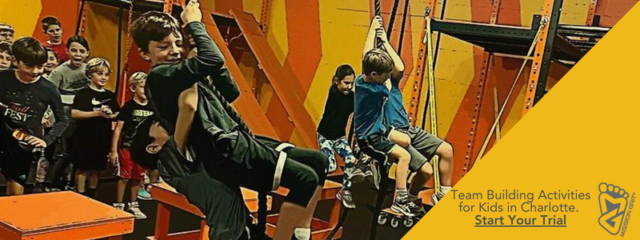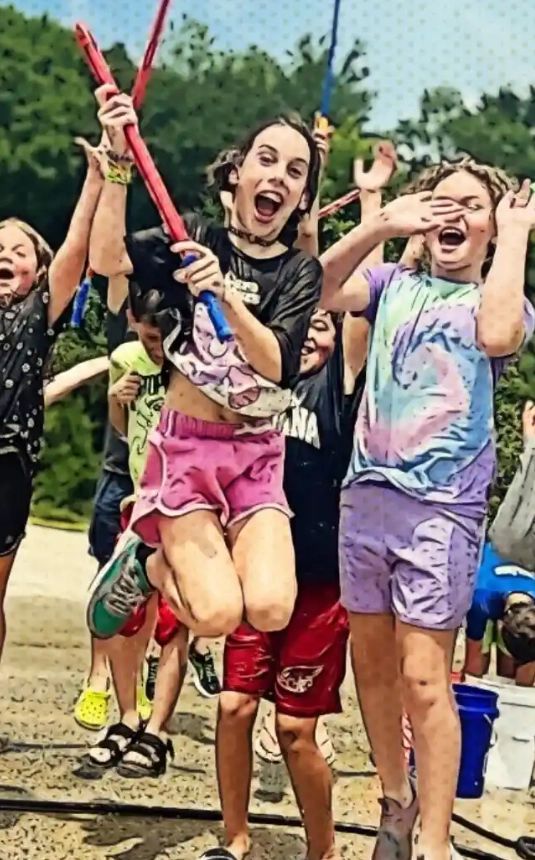4 Fun Leadership Activities for Kids to Develop Essential Skills
Introducing children to leadership skills at an early age can be incredibly beneficial for their future. Not only can it boost their confidence and self-esteem, but it can also enhance their communication, teamwork, and problem-solving abilities. In this article, we’ll explore five fun activities that can help develop these essential skills in kids.
Here are the 4 activities for kids:
The Importance of Developing Leadership Skills in Children
Leadership skills may not seem like a necessary trait for children, but it can play a crucial role in their development. It teaches them valuable life skills that they can use in their personal and professional lives. Children with developed leadership skills have an easier time socializing, making decisions, and working with others.
Developing leadership skills in children is essential in today’s world. With the ever-increasing competition in the job market and the need for effective communication and problem-solving skills, children need to start developing their leadership skills from a young age.
Boosting Confidence and Self-Esteem
When children participate in leadership activities, they are encouraged to step out of their comfort zone and take charge. It allows them to gain confidence and self-esteem by demonstrating their abilities and capabilities. The activities create a safe environment for children to practice and build upon their skills.
Confidence and self-esteem are essential for children’s mental health and well-being.
When children feel confident about themselves, they are more likely to take on challenges and pursue their goals. Developing leadership skills can help children build their confidence and self-esteem, which will benefit them in all areas of their lives.
Enhancing Communication and Teamwork
Effective communication and teamwork are two critical components of leadership. Through participating in leadership activities, children can enhance their communication and teamwork skills. It will teach them how to listen to others, express their own thoughts and ideas, and work collaboratively with their teammates.
Good communication skills are essential in all aspects of life. Whether it’s in school, at home, or in the workplace, effective communication can help children build stronger relationships and achieve their goals. Developing leadership skills can help children become better communicators and team players, which will benefit them both personally and professionally.
Fostering Problem-Solving and Decision-Making Abilities
Leadership activities often require children to face challenges and solve problems as a team. Through these activities, children learn how to think critically and make effective decisions. It trains them to consider different perspectives and come up with creative solutions to problems.
Problem-solving and decision-making are essential skills that children need to develop to be successful in life. Whether it’s solving a math problem, making a decision about their future, or dealing with a difficult situation, children need to be able to think critically and come up with effective solutions. Developing leadership skills can help children become better problem-solvers and decision-makers, which will benefit them in all areas of their lives.
In conclusion, developing leadership skills in children is crucial for their personal and professional development. It can help them build their confidence and self-esteem, enhance their communication and teamwork skills, and foster problem-solving and decision-making abilities.
By encouraging children to participate in leadership activities, parents and educators can help prepare them for a successful future.

Activity 1: The Blindfolded Obstacle Course
The Blindfolded Obstacle Course is an excellent way to develop communication and trust between teammates. The goal of the activity is to have one child navigate through a course while blindfolded, guided by their teammate’s voice.
Setting Up the Course
Before beginning the activity, create a course with various obstacles such as cones or chairs. Next, pair up the children and assign one to be the navigator and the other to be the blindfolded teammate.
Developing Trust and Communication Skills
Once the blindfolded teammate is in place, the navigator must guide them through the course using only verbal instructions. The activity will help the children develop trust and communication skills by relying on each other to complete the task successfully.
Activity 2: The Marshmallow Tower Challenge
The Marshmallow Tower Challenge is a fun and exciting activity that encourages creativity and collaboration. The goal of the activity is to build the tallest tower using only marshmallows and toothpicks. Here is Instructions to the Marshmallow Challenge.
Gathering Materials and Setting Goals
Before beginning the activity, gather materials such as marshmallows and toothpicks and set a goal for the children to achieve. The children will work together to build the tallest tower they can within a set time limit.
Encouraging Creativity and Collaboration
The Marshmallow Tower Challenge encourages creativity and collaboration among the children to solve the problem of building the tallest tower. They will learn how to express their ideas and work together to achieve a common goal within a designated timeframe.
Activity 3: The Human Knot
The Human Knot activity is an excellent way to improve problem-solving and teamwork skills. The goal of the activity is to unravel a human knot using only verbal communication and without letting go of hands. Here is how to play the Human Knot Game.
Forming the Knot and Establishing Rules
Before beginning the activity, have the children form a circle and hold hands. Next, they must move and twist around until they form a knot. The objective is to unravel the knot without letting go of hands.
Building Teamwork and Problem-Solving Skills
The Human Knot activity requires the children to work together to unravel the knot. It promotes problem-solving and teamwork by requiring the children to communicate and strategize with one another to achieve the goal.
Activity 4: The Leader Says Game
The Leader Says Game is an excellent activity for developing listening and following instructions skills. It is a fun twist on the traditional Simon Says game. Here is how to play The Leader Says Game.
Adapting the Classic “Simon Says” Game
Instead of using the name Simon, assign one of the children to be the leader. The leader will give instructions, and the other children must follow along. If a child performs an action without “the leader says,” they are out of the game.
Teaching Active Listening and Following Instructions
The Leader Says Game teaches children how to listen actively and follow instructions. It helps develop their listening skills and teaches them the importance of paying attention to the leader’s instructions.
Conclusion
Participating in leadership activities can help children develop various essential skills such as communication, teamwork, problem-solving, confidence, and self-esteem. The above five activities can be carried out at home, school, or in any group setting. Encourage your children to participate and help them foster these essential skills that will benefit them throughout their lives.
Looking for leadership activities for kids in Charlotte? We have you covered. Book a free trial with our XPLOR Program.





